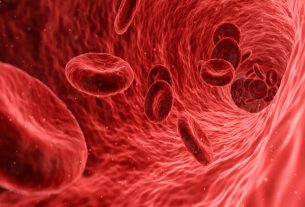The relationship between insomnia and disease is clearly demonstrated. Most people experience changes in their sleep as they age, and many elderly people lose the ability to sleep deeply and restfully. This loss of sleep carries a risk of developing various diseases.
Decreased hours of restful sleep are associated with several medical conditions, including depression, dementia and cardiovascular problems. It is known that different pathologies and their treatments can cause sleep problems, but poor sleep also promotes the development of diseases.
Causes of insomnia
The exact cause of sleep problems in older people is not known. However, we do know that many pathologies interfere with sleep. For example, people with urinary diseases that force them to urinate at night or with respiratory pathologies that make it difficult to sleep lying down suffer frequent interruptions in sleep. However, many people without these pathologies also have difficulty falling asleep and do not get enough sleep.
A common cause of interference with nighttime rest is sleep apnea, which causes repeated interruptions of sleep during the night and is associated with cardiovascular disease and diabetes. Sleep apnea can also accelerate the decline of memory and thinking. Many patients with sleep apnea sleep longer than usual, but this is poor quality, non-restorative sleep.
Most people tend to get up to urinate more often at night as they get older, which contributes to sleep disruptions. Some of these people fall back to sleep easily, but others do not, thus losing sleep time. It has been suggested that excessive dietary salt intake may promote increased nocturnal diuresis, so it is recommended to reduce it.
Lifestyle can contribute to getting enough restful sleep. It is known that heavy meals or dinners with heavy foods make it difficult to sleep at night. Light meals without too much liquid can promote better sleep and fewer interruptions to urinate. On the other hand, physical exercise also helps regulate sleep, so this is another reason to recommend exercising every day.
Insomnia and cardiovascular disease
Over the past decade, evidence has accumulated of the harmful effects of insomnia on cardiovascular health. Different studies have shown that sleep loss is associated with an increased risk of heart attack and stroke. However, the exact mechanism of this association is not known.
Some studies have shown that insomnia causes changes in metabolism and endocrine function, increases activation of the nervous system and raises blood pressure. It also causes an increase in the levels of certain proteins related to inflammation. These changes could explain the increased cardiovascular risk observed in people with insomnia.
Research confirms that millions of people around the world do not get enough sleep. More and more people are complaining of insomnia. People who wake up several times a night miss out on deep sleep phases.
It has been observed that women are more prone to insomnia than men. Older women often have trouble sleeping and many do not get a sufficiently restful sleep. Therefore, these women may be at greater risk of cardiovascular complications.
Insomnia and dementia
Various studies suggest that there is a clear link between sleep disturbances and the process of dementia. Dementia is associated with sleep problems, while insomnia, in turn, accelerates the decline of memory and thinking skills. Animal studies suggest that deep sleep helps to eliminate beta amyloid proteins that accumulate in people with dementia.
There is therefore a vicious circle between dementia and insomnia, in which they mutually encourage each other. This vicious circle phenomenon could also occur in other pathologies, including cardiovascular diseases, since these can disrupt sleep, and insomnia is associated with a higher risk of heart attack and stroke.



